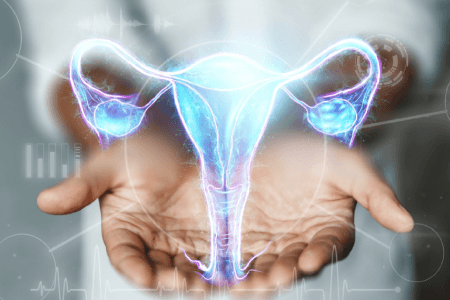Signs and Symptoms of Cervical Cancer

Early cervical cancer often has no symptoms, which is why regular screening is so important. However, as the cancer progresses, symptoms may include:
- Vaginal bleeding between periods or after menopause
- Vaginal discharge that is heavy or has a foul odor
- Pelvic pain
- Pain during intercourse
If you experience any of these symptoms, it’s important to speak with a medical professional as soon as possible.
Stages of Cervical Cancer

There are four stages of cervical cancer:

- Stage I: Cancer is present, but is small and has not spread beyond the cervix.
- Stage II: Cancer is larger and may have spread to nearby tissues.
- Stage III: Cancer has spread to the lower part of the vagina or to the pelvic wall.
- Stage IV: Cancer has spread to other parts of the body.
Causes and Risk Factors for Cervical Cancer
The main cause of cervical cancer is the human papillomavirus (HPV) infection. Other risk factors may include:
- Early sexual activity
- Multiple sexual partners
- Weak immune system
- Long-term use of oral contraceptives
- Smoking
- Poor nutrition
Prevention, Screening, and Diagnosis of Cervical Cancer
Cervical cancer can be prevented with vaccination against HPV and regular screenings, such as pap tests or HPV tests. It’s also important to have safe sex practices and follow good personal hygiene.
Treatment Options for Cervical Cancer
The treatment plan for cervical cancer will depend on the stage of the cancer, as well as the patient’s overall health and personal preferences. Treatment options may include:
- Surgery: This may include the removal of the cervix, uterus, and/or lymph nodes.
- Radiation therapy: This treatment uses high-energy beams, such as X-rays, to kill cancer cells.
- Chemotherapy: This treatment uses drugs to kill cancer cells.
- Brachytherapy: This is a form of internal radiation that is delivered directly to the cervical cancer.
Tales from
Our Healthcaring Journey
Contact Us
Visiting Hours
OPEN 24 hours 7 days a week.
OPD Timings : Monday to Saturday
( 9:00 AM to 5:30 PM )
Appointments
Emergency
Visit the hospital
MGM Cancer Institute
No 119 & 121, Nelson Manickam Road, Raajeswari Street, Rajaram Mehta Nagar,
Aminjikarai, Chennai – 600029



















